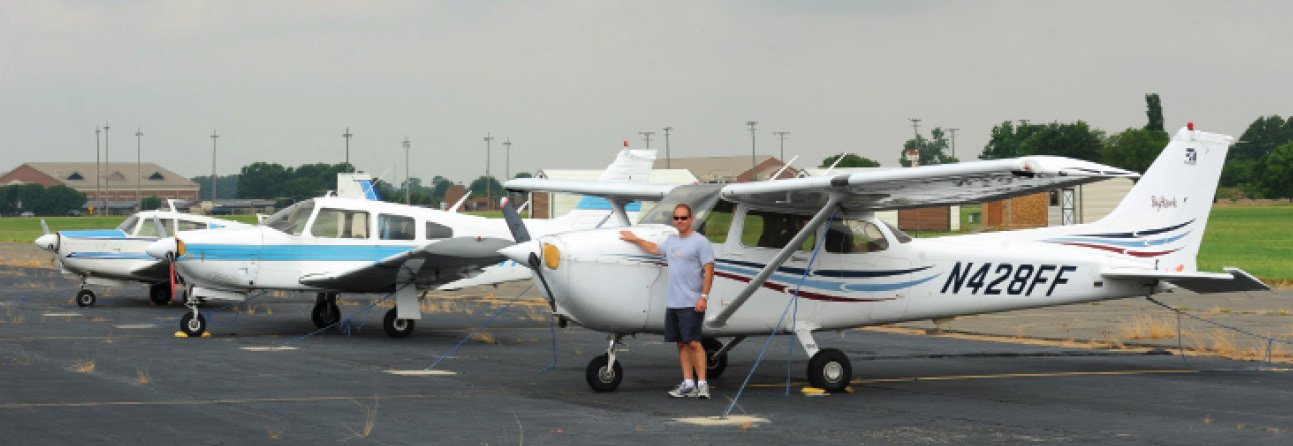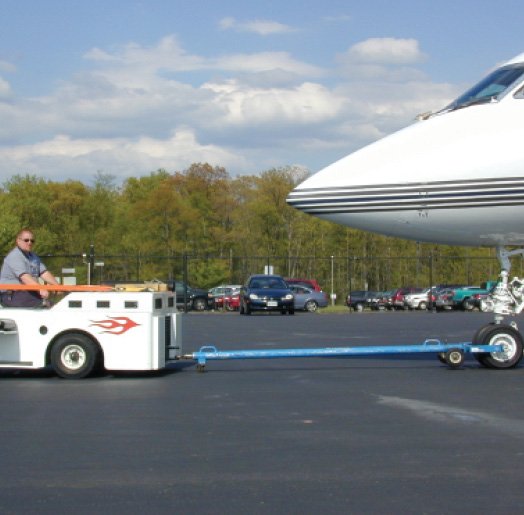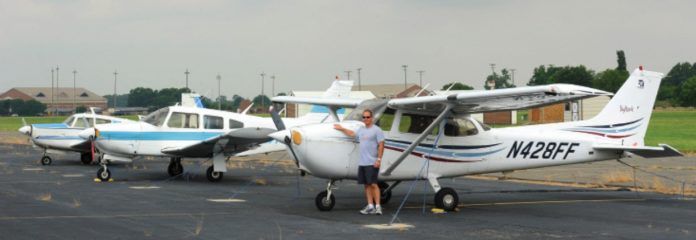Pilots wanting to fly but who don’t have the resources to own and operate their own airplane usually find themselves renting from an FBO or training organization, joining a flying club or entering into some kind of shared ownership arrangement. Renting or sharing airplanes often can be a good choice for someone with varying needs, but experiences can vary and your operational priorities, to put it gently, may not be shared by the organization supplying the aircraft.
Whether it’s a traditional FBO, a flying club (for-profit or non-profit) or a partnership, when we enter such a domain for the first time, we have to believe that the people and the machines that we will find within will keep us safe. For the vast majority of the cases this is true. However, that’s not always the situation we encounter. Moreover, things can change over time, for the worse. Allow me to share with you some stories of when my well-being and priorities may not have been uppermost in the mind of those from whom I rented an airplane.

Ab Initio
When I first wanted to learn to fly, I went to my local flying club. It had a good-sized fleet of older planes, which was a good thing, since on any given day one of each model would be down for repairs. However, I usually could find something to rent and fly without too much trouble.
Other signs of the coming apocalypse were everywhere. The airplanes’ carpets were old and worn, just like the airplanes, and the manager just didn’t seem to care. Finally, management did not treat the flight club as a business—they didn’t advertise or address any of the issues that came up with the business. Instead, they just wrote a check every month to keep the doors open. Partway into my flight training, the maintenance staff quit, naturally.
In retrospect, I should have seen the writing on the wall. There was no way this club was going to survive the way it was configured. Something had to change. Luckily before the wheels came off and someone got hurt or killed, the club was purchased by someone with deep pockets and the business sense to turn it around.
Soon, the old airplanes were out, replaced with newer, glass-panel aircraft. The maintenance staff was replaced and the level of workmanship and service was improved. Finally, the spaces housing the operation were remodeled. I was in the place a month ago and I was amazed as to what I saw: a vibrant flight club, well-maintained planes and a maintenance staff that was top-notch. I now have some level of confidence that the people looking after the club care about the aircraft and facilities they are promoting.
Advanced Training
The next club in my story is a place focused on advanced certificates. They had recently moved to a new facility in a small airport in California’s Central Valley. At first glance, one could see that the airplanes were dirty. Not dirty with a layer of dust on the wing. Instead, they were dirty like a layer of oil on the belly that turned a red and white airplane black. A layer of oil and dirt I spent four hours scrubbing to get it to a level that I could take to a designated pilot examiner, look him in the eye and not be ashamed. Or flunked.
When I went to fuel the aircraft I was flying, I removed the fuel cap and looked into the tank. The inside of the tank was bowed out from the fuel nozzle hitting against the side, causing dent upon dent to such a level I was shocked that the tank didn’t leak. More accurately, it didn’t leak as far as I knew.
The airplane’s primary nav/com and GPS navigator was missing from the panel. I was given many wishy-washy answers to my questions as to where and when, etc. The story I can best put together is that the radio was stolen. I suspect it actually was removed as compensation for work performed, sold for cash to keep the doors open, etc. I was told the radio was going to be there by the time of my check ride. It probably doesn’t surprise you to learn the radio never came back.
And of course when I went to fly the aircraft for the first time, the battery was dead. All of this was managed by a soothing word from the owner and my knowledge that I was only there for a week or two and that everything was going to be all right. This did not end well, a story for another day.
Doing Better
My last tale involves the flying club at which I teach. The club maintains its aircraft well. The fleet, while small, is relatively new. The facility is modest and well-kept. The paperwork is a struggle, however: When a flight is canceled, the student is notified by the manager and all is put right. There is the ever-present back and forth—does this need to be fixed now, or can it be fixed later?
Things went along fine right up until the manager accepted an offer to take a job at another business on the airport. Shortly afterward, the operation’s only mechanic followed. Now we had an owner trying to do it all. Run the front desk, work on airplanes and provide strategic guidance. As you might imagine, this set off my alarm bells.
The last time I flew their aircraft, there was piece of Scotch tape over one of the switches that selected which set of controls activated the aircraft’s electric pitch trim. The checklist had been modified with a red pen so that the co-pilot trim test was not performed. I can hear the owner’s voice ringing in my ears: “The switch is not required and the pilot side works just fine.” I’m sure he has a point. However, what are we doing here? This is not how aviation is done, and I have seen this type of thing go wrong before.
The jury is still out on if this operation can survive. I’ve given my counsel as to what I believe will be the right steps for me to stay. The ball is in the owner’s court now.
I am not opposed to a well-maintained older fleet. As long as a continued investment is made to ensure they are regularly, thoroughly inspected and repaired to the highest standards, these aircraft can operate indefinitely. Personally, I think a 152/172 with round gauges cannot be beat for primary training.
I also believe the majority of the mechanics are far and away one of the most conscientious groups out there. They don’t make much money, and they all understand the awesome responsibility they have. They do their best every day to ensure the aircraft are safe to fly while meeting the goals of their bosses and the aircraft owners. They do make mistakes like the rest of us.
Finally, let me share a story about purchasing a bicycle helmet. I looked at the display wall—there were a dozen options, starting from $10 up to $200. I asked the salesman which helmet was right for me. He looked me in the eye and said, “Well, if you have a $10 head, a $10 helmet.” Find the rental, club or partnership situation right for you.
A Word To Management
This sidebar is directed at FBO, flying club and partnership management: How about your side of this bargain? Is someone you trust looking after maintenance? Are you handing over the keys to someone to run the place while you fly off for a week? When the lead mechanic says this is looking worn, do you say, “Okay, order the part let’s get that fixed as soon as we can”? Or are you pulling out the label maker and printing inop stickers?
What is your level of risk here? If the mechanic finds something wrong, will he have the courage to ground the airplane and risk losing business, or will he pencil-whip it, thinking he will fix it next time? Be sure the aircraft you are renting is up to your standards. Are your aircraft maintained as well as can be?

There are some facilities out there that have the white floors, where everything is in its place and there is not an owner to be seen. If you can afford this level of service, and meet your commitments to renter-pilots, all the better for you. However, this means that you must act as a firewall between the budget and safety. It’s not an easy task. But it’s critical that you perform it well.
Click here to read our article “One Pilot’s Progression.”
James Warmkessel holds FAA flight, instrument and multi-engine instructor certificates, and is an A&P-IA. He’s also an aviation podcaster and IT professional living in the San Francisco area. Follow his podcast at www.avstry.com.




